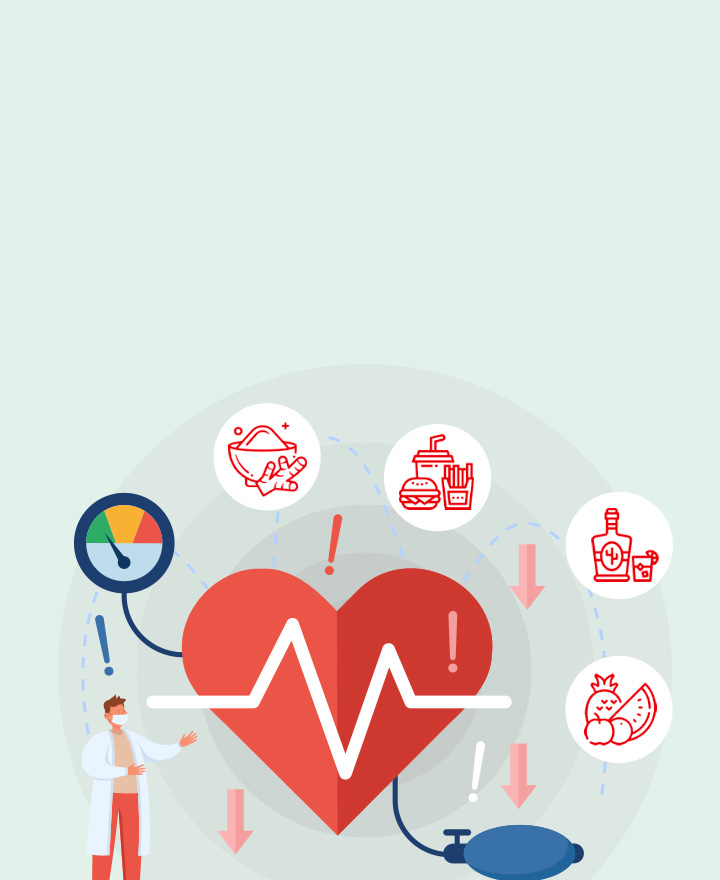

Hepatitis A Disease – Learn how to Protect your Liver from Infection
Hepatitis A, also known as Hep A is a contagious liver disease caused by the hepatitis A virus (HAV). It is a vaccine preventable infection that usually spreads through contaminated food or water or close contact with an infected person. The hepatitis A normally isn’t dangerous and the best way to prevent it is to get vaccinated. Read on to know more.
Symptoms
Not everyone who is infected with Hepatitis A experience symptoms. Adults are more likely to show symptoms than children, and those below 6 typically don’t have any symptoms. However, symptoms can include the following:
• Fever
• Loss of appetite
• Weakness and fatigue
• Diarrhoea
• Nausea, vomiting
• Pain in the abdomen
• Itchy skin
• Jaundice or yellowing of skin and eyes
• Joint pain
• Light-coloured stools and dark-coloured urine
Hepatitis A Transmission
Hepatitis A virus can spread in the following ways:
• By eating food that is prepared or handled by someone who has been infected with Hepatitis A virus
• By consuming food prepared in unhygienic conditions
• Eating foods washed with contaminated water
• Drinking polluted or contaminated water
• Consuming raw shellfish harvested from sewage-contaminated water
• By coming in close contact with someone who has the virus
• Having sex with someone who has contracted the virus
Risk Factors
Certain factors which can increase the risk of getting Hepatitis A are:
• Living with someone who has Hepatitis A infection
• Travelling to countries where the incidence of hepatitis A is high
• People with HIV
• People with chronic liver disease such as Hepatitis B and C
• Poor sanitation
• Lack of safe drinking water
• Close contact with a person who has the Hepatitis A virus
• Working with primates
• Having sex with an infected person
• Sex between men
• Use or inject recreational drugs
Diagnosis
Based on your signs and symptoms, the doctor will ask you to do a blood test to confirm s most people with hepatitis A do not have any symptoms hence it’s difficult to make a diagnosis through physical examination. So, a blood test is done to confirm whether or not the person has been infected with the virus.
Treatment
As the virus usually goes away on its own, there is no specific treatment. The doctor will prescribe treatment options basically focused on managing the symptoms such as:
• Take a good amount of rest till the symptoms subside, as people with Hepatitis A infection often feel sick, fatigued, and have less energy than usual.
• Keep yourself hydrated with plenty of fluids, including juices, smoothies, broths, etc.
• Maintain a balanced and healthy diet. If you feel nauseous, it’s better to go for snacks or smaller meals during the day instead of full meals. Include more high-calorie foods in your daily diet.
• Avoid alcohol when you are infected with Hepatitis A, as it can damage your liver. This is because it’s difficult for the liver to handle medications and alcohol when there is a virus in your body. Talk to your doctor if you are taking any other medications.
However, in some cases, medications may be prescribed to reduce the symptoms. It’s advisable not to take any OTC medicines without consulting your doctor.
Prevention
Some ways you can protect yourself from Hepatitis A infection are:
1. Get inoculated with Hepatitis A vaccine. If you need to travel to a country where cases of Hepatitis A are high, take the vaccine at least 2 weeks before your travel. If you come in contact with an infected person, you can go for a vaccine shot within 2 weeks.
2. Practice hand hygiene, such as washing your hands thoroughly before preparing food or eating and after using the restroom or changing your baby’s diapers.
3. Avoid meeting or being in close contact with people who are infected with the virus.
4. Avoid consuming raw fruits and vegetables, particularly from places with low hygienic standards.
Conclusion
Hepatitis A is considered mild and common, but it can lead to severe complications if left untreated. If you experience any symptoms, it is good to consult your doctor and not self-medicate.
One of the important components of our overall wellness is also being financially secured. Healthcare emergencies can happen any time, but a good health insurance policy can protect you from such uncertain situations. To know more about Wellness and other health related tips, visit the wellness corner.
Source: cdc.gov, mayoclinic.org, healthline.com, webmd.com, clevelandclinic.org
Disclaimer: This blog provides general information and discussions about health and related subjects. The information and other content provided in this blog, website or in any linked materials are not intended and should not be considered, or used as a substitute for, medical advice, diagnosis or treatment. Kindly contact your Doctor before starting a new medicine or health regime.
Related Articles
5 Home-Made Immunity Booster Drinks That You Must Have
World Hepatitis Day 2022: Everything You Need To Know
Common Monsoon Diseases and How to Prevent those?
Immunity Building Tips - How Can I Boost My Immune System Naturally?
Effective Ways To Increase The Good Cholesterols In Your Body
Published on May 10, 2024














 Health Insurance
Health Insurance  Travel Insurance
Travel Insurance  Car Insurance
Car Insurance  Cyber Insurance
Cyber Insurance  Critical Illness Insurance
Critical Illness Insurance
 Pet Insurance
Pet Insurance
 Bike/Two Wheeler Insurance
Bike/Two Wheeler Insurance  Home Insurance
Home Insurance  Third Party Vehicle Ins.
Third Party Vehicle Ins.  Tractor Insurance
Tractor Insurance  Goods Carrying Vehicle Ins.
Goods Carrying Vehicle Ins.  Passenger Carrying Vehicle Ins.
Passenger Carrying Vehicle Ins.  Compulsory Personal Accident Insurance
Compulsory Personal Accident Insurance  Travel Insurance
Travel Insurance  Rural
Rural